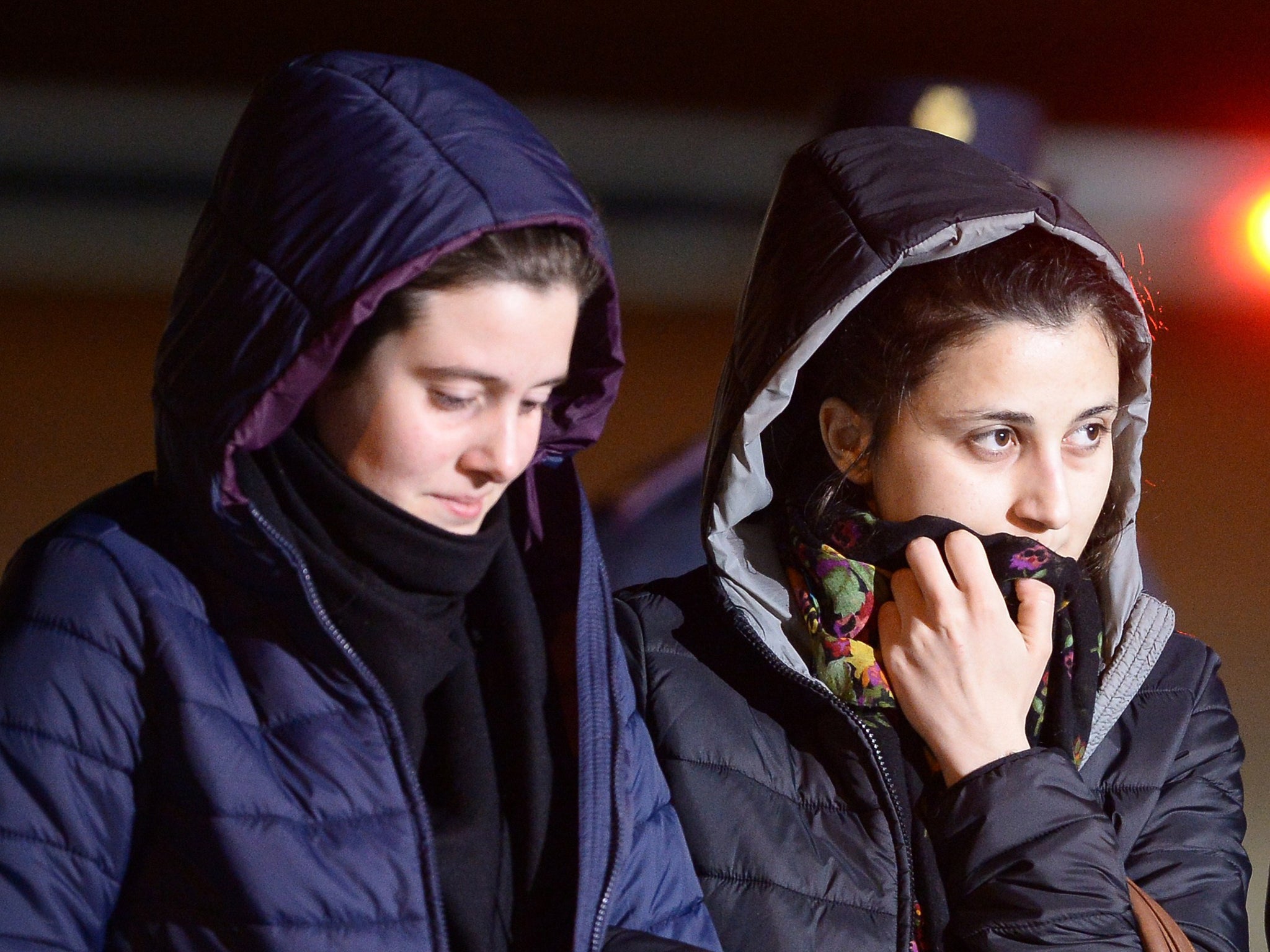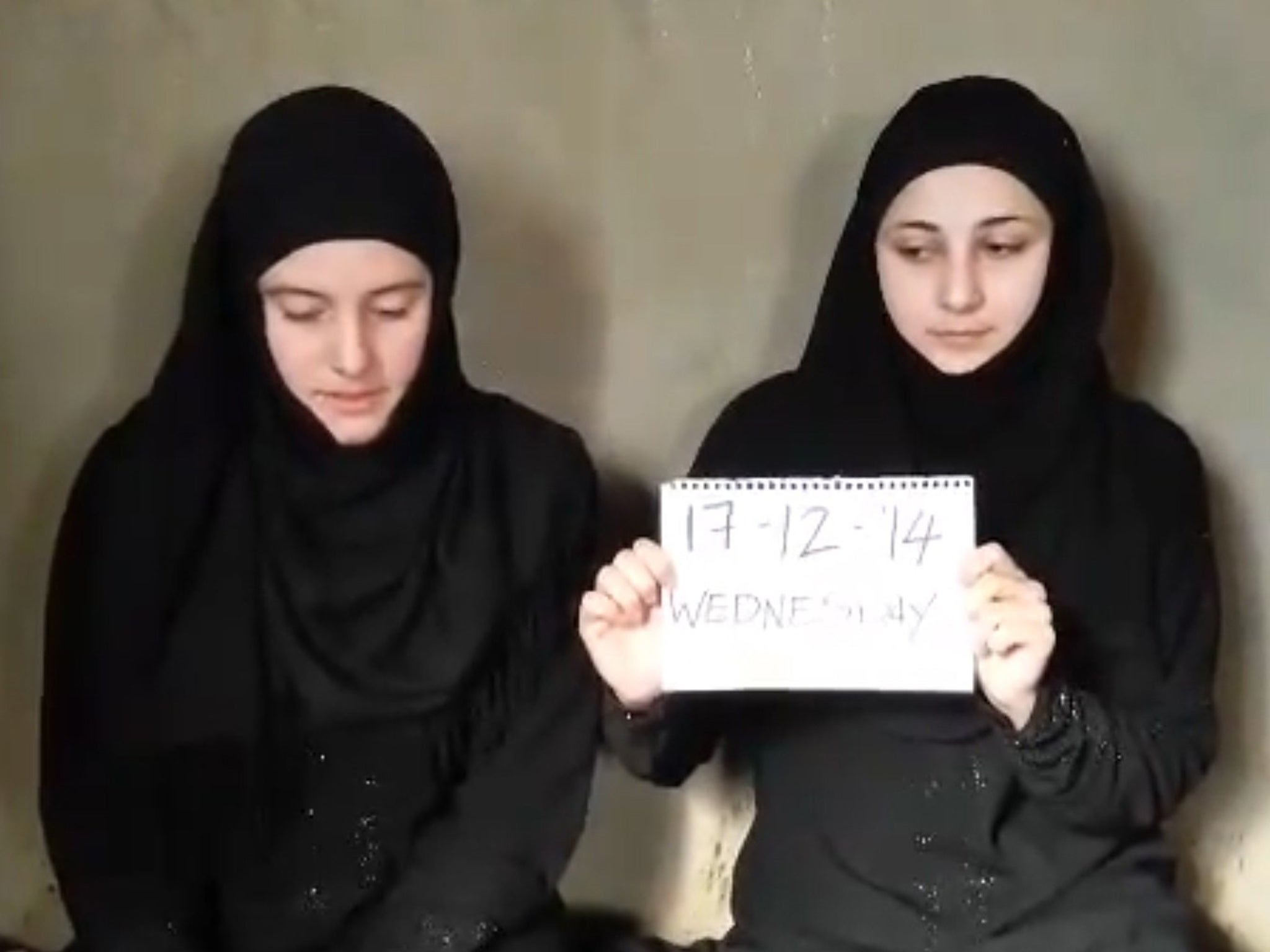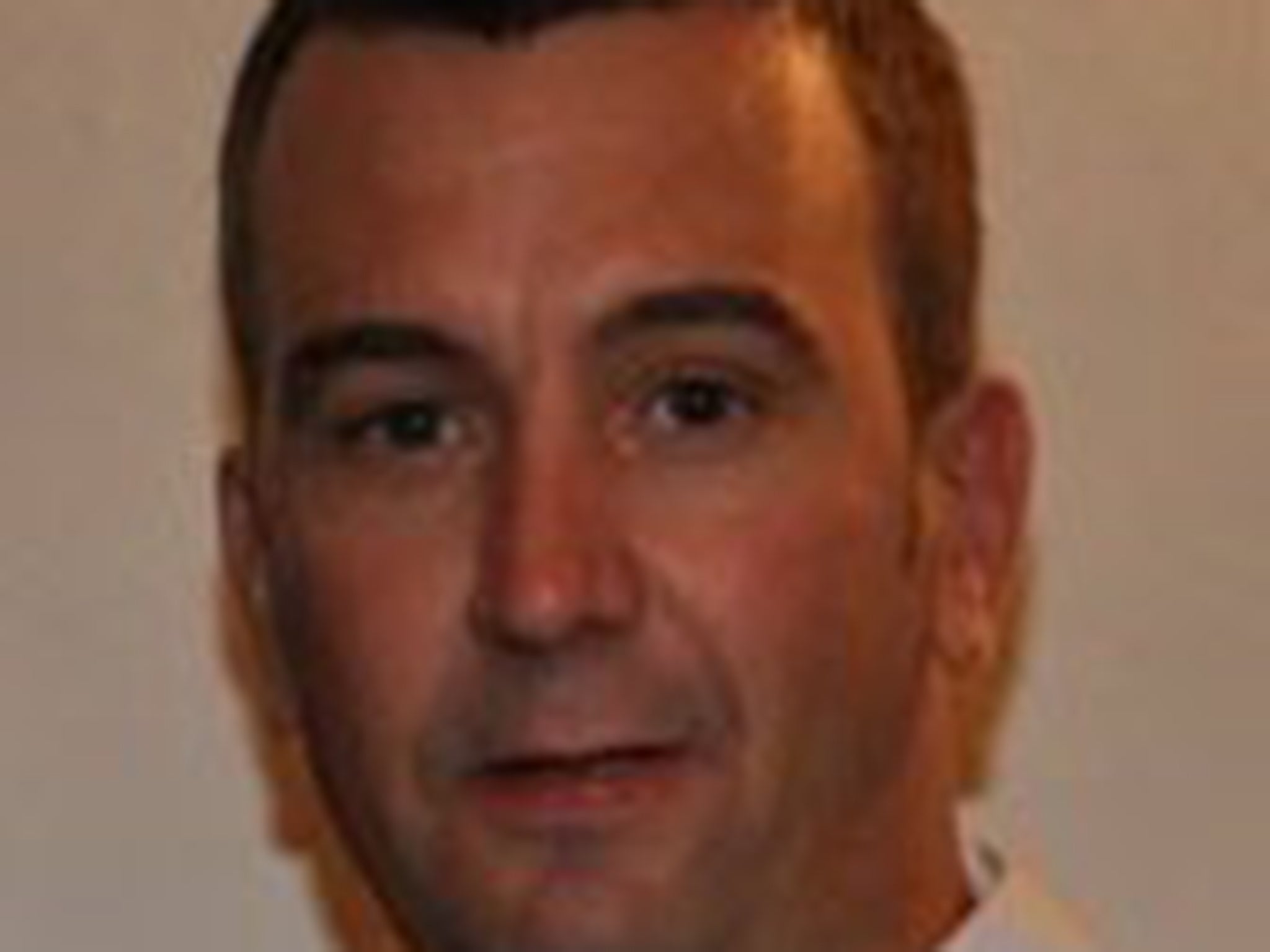The price of freedom: Did Italy pay a €12m ransom for the release of aid workers in Syria?
Two young aid workers held hostage in Syria have been released, but suspicion is growing that the Italian government broke international convention and paid the kidnappers a €12m ransom

After a harrowing six-month ordeal in Syria, where they were held as hostages by an al-Qaeda-linked group, two young Italian aid workers arrived back in Rome in the early hours of yesterday.
But even as their plane landed, suspicion was growing that the Italian government had joined others breaking international convention by paying a ransom of as much as €12m to the kidnappers.
Volunteers Greta Ramelli, 20 and Vanessa Marzullo, 21, who were seized near Aleppo in July 2014, touched down at Rome’s Ciampino airport at 4am on Friday, after a three-hour flight from Turkey. Their delighted parents expressed their relief and joy, and Italy’s Foreign Minister Paolo Gentiloni hailed their release. “Greta and Vanessa freed. The result of Italy’s intensive teamwork,” he tweeted.
But immediately rumours grew that the Italian government had broken a G7 agreement by paying a huge ransom to Jabhat al-Nusra, an anti-Assad Islamist group, to free them. Later in the day in a statement to the Italian parliament, Mr Gentiloni offered what many saw as an unconvincing denial that a ransom had been paid. “We are against ransom payments,” he said. “Italy has adopted the position shared at an international level in line with preceding governments.”

Some commentators and politicians noted that there was evidence that earlier Italian governments – and other Western countries – had already bought the freedom of countrymen kidnapped by Islamic terror groups.
Mr Gentiloni said he had “read with surprise the unfounded rumours” on the nature of Italy’s talks with the kidnappers, and said that the kidnappers themselves may have spread lies about events.
But when The Independent later asked the Italian Foreign Ministry if it could categorically deny that money had been paid for the pair’s release, its spokesman would not issue a clear-cut denial. Instead, he referred the paper back to Mr Gentiloni’s statement.
Before Mr Gentiloni’s speech, MP Domenico Scilipoti of the centre-right Forza Italia party had called on Mr Gentiloni to tell the Italian people if a ransom was paid, and if so how big it was. “We have to reflect on the danger that we could be helping to fund the architects of the Charlie Hebdo massacre,” he said.
After the parliamentary statement, the Forza Italia senator Lucio Malan repeated the calls on the government to clarify whether money had changed hands. If this was the case, he said, it “would encourage terrorists” and the money would be used to “buy more arms and fund more kidnaps”.
Prior to the women’s release, Rome had said only that it was engaged in “delicate negotiations” to free Ms Ramelli and Ms Marzullo.
The stakes appeared to be raised on 2 January when a short video of the two women appeared on YouTube. Both Ms Ramelli and Ms Marzullo, dressed in chadors, appealed for their release, saying they were “in great danger”. Significantly, one of the hostages said that “the government and its mediators are responsible for our lives”.
The video was seen by many as a warning that the ransom price could increase or that the hostages might even be sold on to another terror group unless its demands were met.
Corriere della Sera reported yesterday that Rome had paid €12m for their release. So too did La Repubblica, citing the Al Aan TV channel in Dubai. Matteo Salvini, head of the right-wing Northern League, while welcoming the women’s liberation, said that if a ransom had been paid to terrorists, it was “shameful”.
Many experts believe that Italy, along with France and Spain, has already paid ransoms to Islamist kidnappers.
It was widely reported that Rome had in fact stumped up €6m for the release last September of Federico Motka, the Swiss-Italian who was kidnapped by Isis in March 2013 before being freed in May 2014.
Mr Mokta shared a cell with British security adviser David Haines, who was murdered by the terrorist organisation last September. A Dane and four French were also held with Mr Haines and Mr Motka. They too were released, reportedly after their governments paid ransoms of about £5m for each of them.

Last September shortly before Mr Haine’s killing, David Cameron urged European leaders to “be good to their word” and stop funding Isis killers by paying ransoms. Mr Cameron said that “tens of millions of dollars” had been paid to extremists in Iraq and Syria and this was helping to promote terror against Britain. He noted that France, Germany and other G7 countries had pledged in 2013 not to pay ransoms. In October 2009, the Italian government also denied reports that its intelligence officers had been paying Taliban fighters not to attack their troops.
Yesterday morning after landing in Rome, Ms Ramelli and Ms Marzullo were taken to the nearby Celio military hospital for a medical checkup.They made no statement, and were described as looking “drained” but relatively well by witnesses at the airport. Today they will be interviewed by the Roman magistrates who have opened an inquiry into their abduction. “We are brimming with happiness,” Ms Ramelli’s mother told press near Gavirate, the town near Milan where the family lives. “We can’t wait to hug our daughter again.” Ms Marzullo’s father, Salvatore, said he felt “reborn”, on knowing his daughter was safe.
Other politicians today said the government should consider dissuading Italians from travelling to danger zones such as Syria. Mr Gentiloni, however, hailed the “bravery and courage” of voluntary workers, adding that he had seen for himself the value work they were doing in areas of extreme deprivation.
But Luca Zaia, the right-wing governor of the Veneto region, called on the released hostages and their families to compensate the Italian state. “Therefore, these two women should make payment until they repay in full the €12m if, that is, the state paid this sum,” he said.
Join our commenting forum
Join thought-provoking conversations, follow other Independent readers and see their replies
Comments
Bookmark popover
Removed from bookmarks